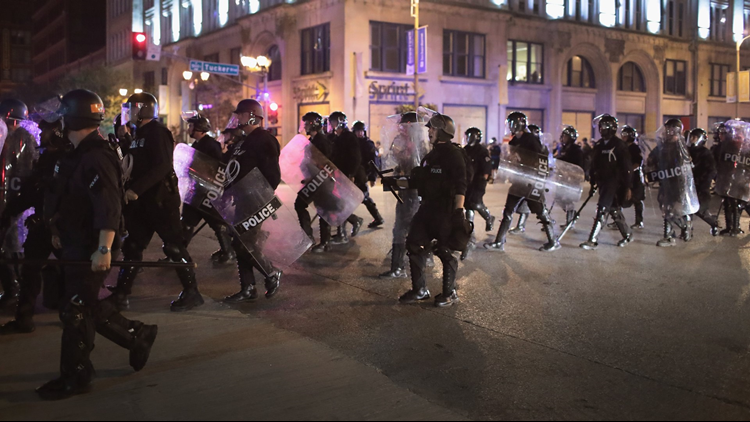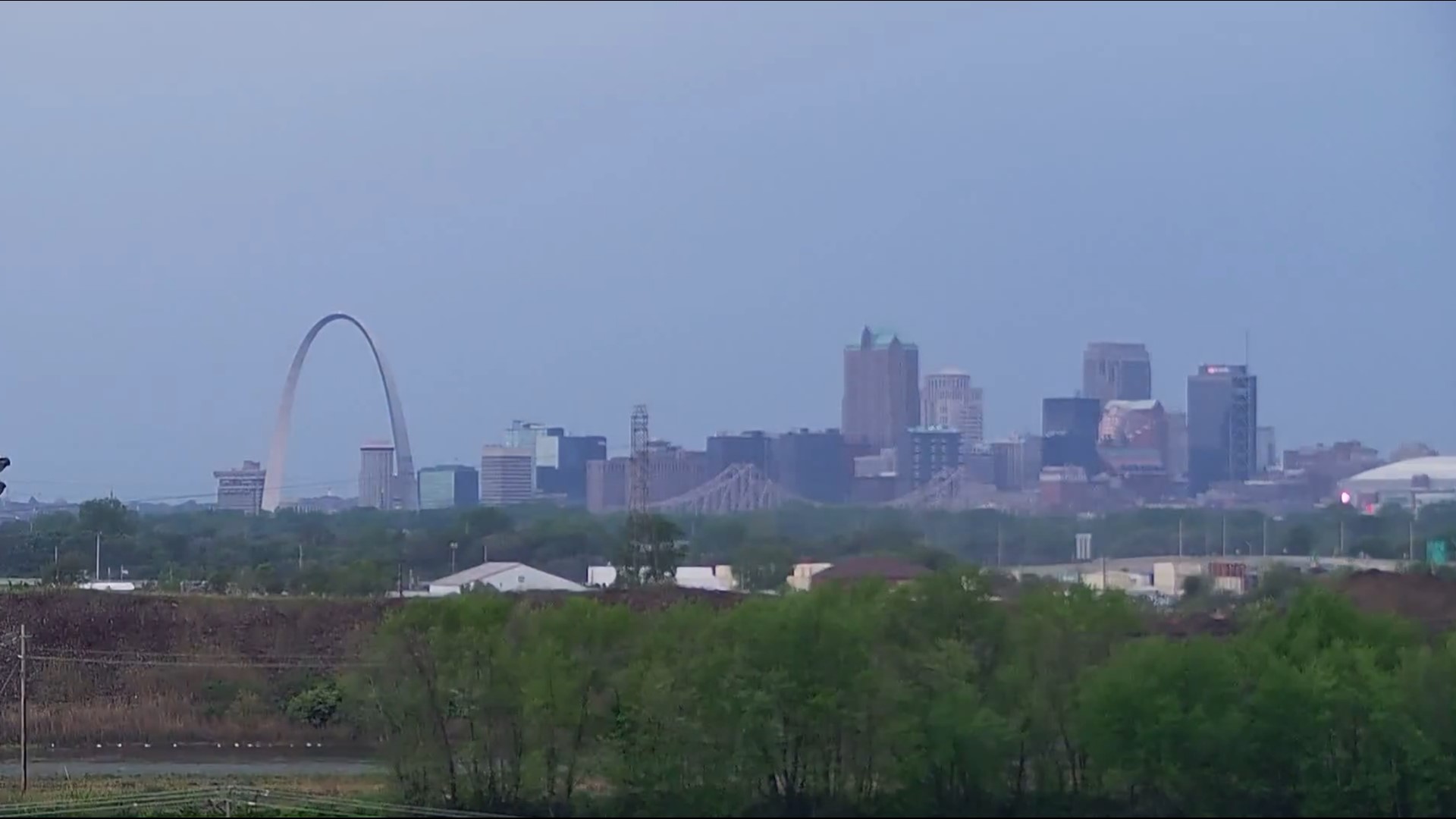ST. LOUIS (AP) — Police in St. Louis who have dealt with dozens of protests in the two months since a former officer was acquitted in the death of a black suspect can't shut down non-violent demonstrations or use chemical agents simply to punish protesters, a federal judge ruled Wednesday.
A leader of the protest movement hailed U.S. District Judge Catherine Perry's temporary restraining order as a win "for the protesters and anybody that's been part of the movement in any way."
"We want to be treated like the Constitution says and not like terrorists," said Cori Bush of the Frontline protest movement. "We're only protesting injustice against the black community."
Koran Addo, spokesman for Mayor Lyda Krewson, said in a statement that the city "will comply with the order of preliminary injunction." A police spokeswoman declined comment, and officials with the St. Louis Police Officers Association did not return messages seeking comment.
A judge's ruling on Sept. 15 acquitted former police officer Jason Stockley, who is white, of first-degree murder in the death of Anthony Lamar Smith, a black drug suspect who was fatally shot by Stockley after a dangerous chase. Within minutes of the announcement of the ruling, protests broke out.
Some of the early demonstrations turned violent, with bricks and bottles thrown at police, windows broken, and other damage. Several officers reported minor to moderate injuries. About 300 people have been arrested.
But many of those arrested claimed police used heavy-handed tactics, including unnecessary use of pepper spray and tear gas, forcing protesters to the ground and even taunting them. A process known as "kettling" has also been called into question. Kettling involves lines of officers moving protesters into a limited area before arrests are made. Several journalists have been among those arrested.
Krewson and Interim Police Chief Lawrence O'Toole asked the U.S. Department of Justice to conduct an independent investigation of police actions.
The preliminary injunctio stems from a lawsuit filed by the American Civil Liberties Union of Missouri. The injunction will be in effect as the lawsuit plays out in court. A trial date has not been set.
"Evidence — both video and testimony - shows that officers have exercised their discretion in an arbitrary and retaliatory fashion to punish protesters for voicing criticism of police or recording police conduct," Perry wrote.
Her order permits police to halt protests, but only if demonstrators pose "an imminent threat to use force or violence or violate a criminal law with force or violence."
Perry also wrote that based on evidence and testimony so far, the ACLU appears likely to succeed in court.
"If St. Louis is to address its long-standing racial inequities, the community must be able to safely express its outrage and pain through nonviolent freedom of speech," ACLU of Missouri Executive Director Jeffrey Mittman said in a statement.
Perry wrote that police can't end protests or use chemical agents such as mace or tear gas to punish people for exercising their right to free speech. The order says before using chemical agents, police need probable cause to arrest a person, must first give "clear and unambiguous warnings" and give people enough time to obey police commands.
The order also appears to address the "kettling" tactic. Perry wrote that police need to give protesters a way to leave if law enforcement decides to shut down a protest.
In addition to the court case, St. Louis aldermen are considering a bill limiting how police respond to protests. Alderwoman Megan Green's proposal would repeal an existing ordinance on unlawful assemblies, limit when officer can use tear gas and pepper spray, and prohibit use of chemical agents on people who are already restrained. It's unclear when the measure will get a final vote.
Meanwhile, Addo said the search for a new police chief is narrowing. Forty-two people applied for the job vacated by Sam Dotson's resignation in April. The city expects to name six finalists by Dec. 14 and hire a new chief a short time thereafter.
___
Ballentine reported from Jefferson City, Missouri.



